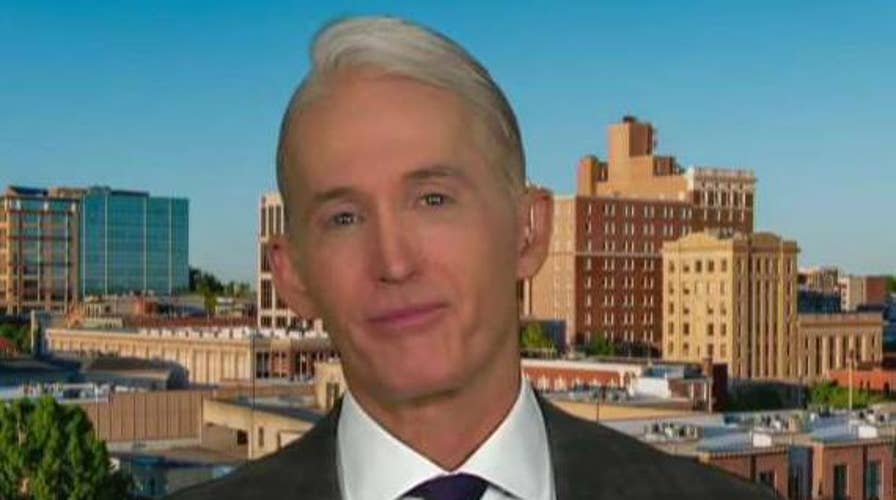Former South Carolina congressman Trey Gowdy believes the release of the Mueller report has not resolved the partisan debate over the Trump campaign’s dealings with Russia in 2016, and that the real “verdict” on the situation will be rendered by the 2020 presidential election.
“I was within in a really smart universe of people that did not think this report should be made public. I didn't think it was going to change anyone's mind and resolve anything and for once in my life, I was right. It's resolved nothing,” Gowdy said Friday on “Your World with Neil Cavuto.”
“You're going to have two more years of investigations. They're not going to go forward with impeachment because that's dicey. But they are going to go forward with investigations on four or five difference House committees. The verdict will be rendered in November of 2020.”
On Thursday, Attorney General William Barr released a version of the Mueller report with redactions that showed investigators did not find evidence of collusion between the 2016 Trump campaign and Russia. It did not come to a conclusion on the topic of obstruction of justice.
Gowdy was not surprised by any information that came to light from the report’s release and criticized Barr for sharing the report in the first place.
KELLYANNE CONWAY, AFTER MUELLER REPORT'S RELEASE, SAYS PRESS APOLOGIES ARE IN ORDER
“I was not surprised because this report was not written for the public. It was written for the attorney general and it was the attorney general and a whole bunch of my Republican former colleagues that thought it would be a neat idea to share an oppo (sic) research piece on someone who is not indicted. The department of justice doesn't do research papers. They either issue indictments or they do not,” Gowdy told Cavuto.
“Clearly he didn't have enough evidence on collusion and what I would say with respect to Mueller is if you have enough on obstruction, then charge him and let a jury of 12 decide whether or not your evidence carries the burden of persuasion.”













































